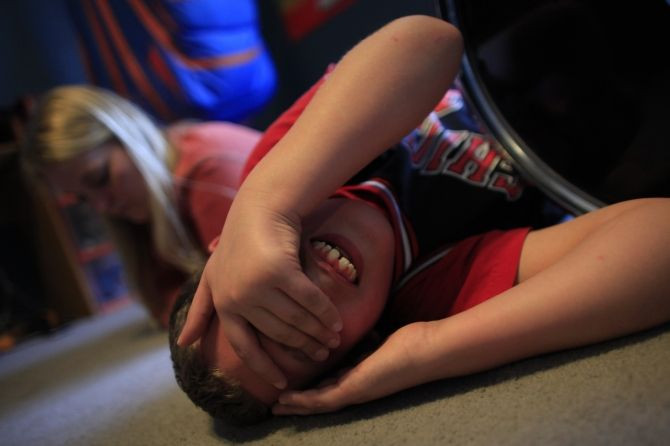Could Abnormal Gut Bacteria Be the Cause of Autism?

With an estimated 1 in 88 people affected with autism spectrum disorder, researchers are on the hunt for, if not a treatment, at least a better understanding of the mechanisms behind the condition. Now, researchers seem to have found a link between autism - and the digestive system, of all places. Researchers have found that certain gut bacteria are more present in children with autism spectrum disorder. The finding could also lead to a blood test for the disorder that could be obtained during pregnancy.
Children with autism typically have increased risk for gastrointestinal problems compared to children without the neurological condition. However, researchers have been unable to explain the link. According to the Toronto Star, recent evidence suggests that the abnormal bacteria present in the guts of children with autism spectrum disorder produce a waste product that affects the organs and ultimately the behavioral problems that characterize the condition - meaning that the gut bacteria could provide a link to the digestive, immune and metabolic problems that occur in some children with autism spectrum disorder. In addition, the abnormalities were not hereditary, but came from environmental causes.
In a study published in the journal Translational Psychiatry, the researchers examined the cases of 213 children with autism spectrum disorder. They found that 17 percent of them had unusual blood markers and evidence of abnormal energy function.
Meanwhile, a study published in the journal mBio found that, in 12 of the 23 samples obtained from children with autism spectrum disorder, a bacteria from the Sutterella group was found. That bacteria was not found in the sample obtained from children who did not have autism spectrum disorder.
"Most work that has been done linking the gut microbiome with autism has been done with stool samples," study author Jorge Benach explained to the Huffington Post UK. "But the microorganisms shed in stool don't necessarily represent the microbes that line the intestinal wall. "What may show up in a stool sample may be different from what is directly attached to the tissue."



























